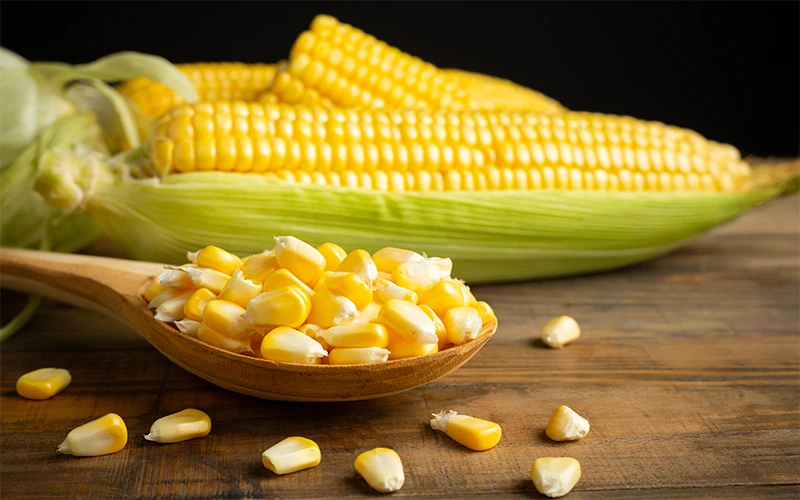Maize, also known as corn, is a cereal grain that is widely cultivated and consumed around the world. It is a staple food in many countries and has various uses in both human and animal nutrition. Here are some key points about maize:
- Origin and Cultivation: Maize is believed to have originated in Mesoamerica, specifically in modern-day Mexico, thousands of years ago. It was domesticated by indigenous peoples and later spread throughout the Americas. Today, maize is grown in diverse climates and regions worldwide, including North and South America, Africa, and Asia.
- Varieties: Maize comes in different varieties, classified based on their kernel color, texture, and intended use. The main categories include dent corn, which has a depression or “dent” on the kernel; flint corn, known for its hard, starchy kernels; and sweet corn, which has a higher sugar content and is typically consumed as a fresh vegetable.
- Nutritional Profile: Maize is a good source of carbohydrates, providing energy for the body. It also contains dietary fiber, vitamins (such as vitamin C, thiamin, and folate), and minerals (including magnesium, phosphorus, and potassium). However, maize is relatively low in protein and lacks some essential amino acids, such as lysine and tryptophan.
- Culinary Uses: Maize is a versatile ingredient used in various culinary preparations. It can be consumed fresh, boiled, steamed, grilled, or roasted as a vegetable. Maize flour is used to make cornbread, tortillas, tamales, and other traditional dishes in many cultures. Maize starch, also known as cornstarch, is a common thickening agent in cooking and baking.
- Industrial Uses: Maize has numerous industrial applications beyond food. It is a primary source of feed for livestock, particularly as cornmeal and silage. Maize is also processed to produce corn oil, corn syrup, ethanol, and other biofuels. Additionally, maize husks and stalks can be utilized for animal bedding, fuel, and the production of biodegradable plastics.
- Genetically Modified Maize: Genetically modified (GM) maize, or genetically engineered (GE) corn, refers to varieties that have been modified through genetic engineering techniques to exhibit specific traits, such as resistance to pests or herbicides. GM maize has been a subject of debate due to concerns about its potential environmental and health impacts.
It’s important to note that while maize is generally safe for human consumption, some individuals may have allergies or sensitivities to it. Additionally, certain corn products, such as high-fructose corn syrup, should be consumed in moderation due to their high sugar content.
Maize plays a significant role in global agriculture and food systems, providing sustenance, livelihoods, and industrial applications. Its versatility and wide availability make it a staple crop with diverse uses across cultures and industries.



